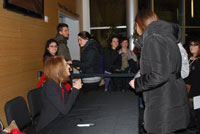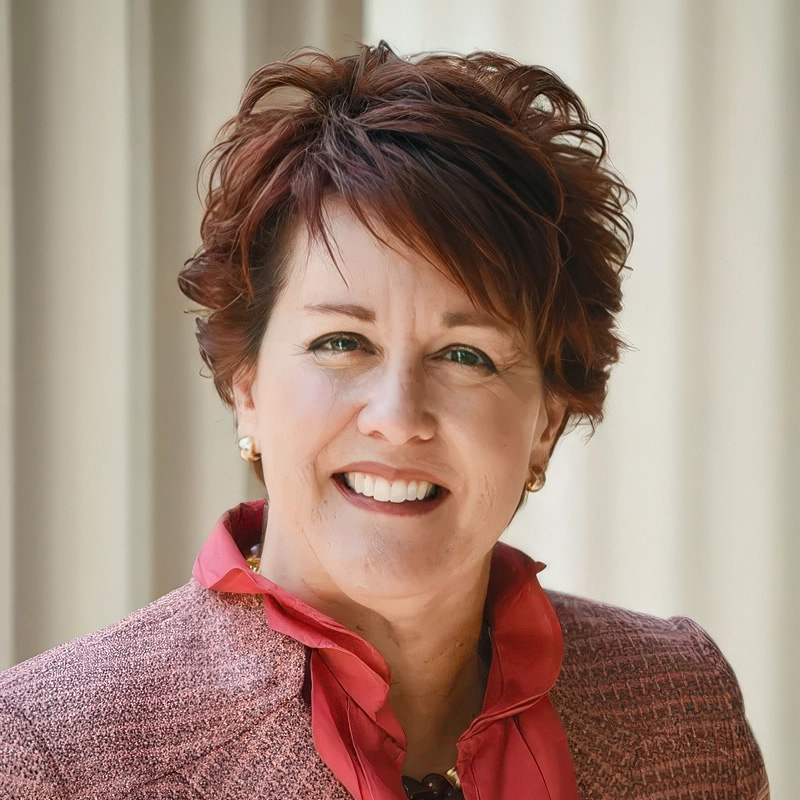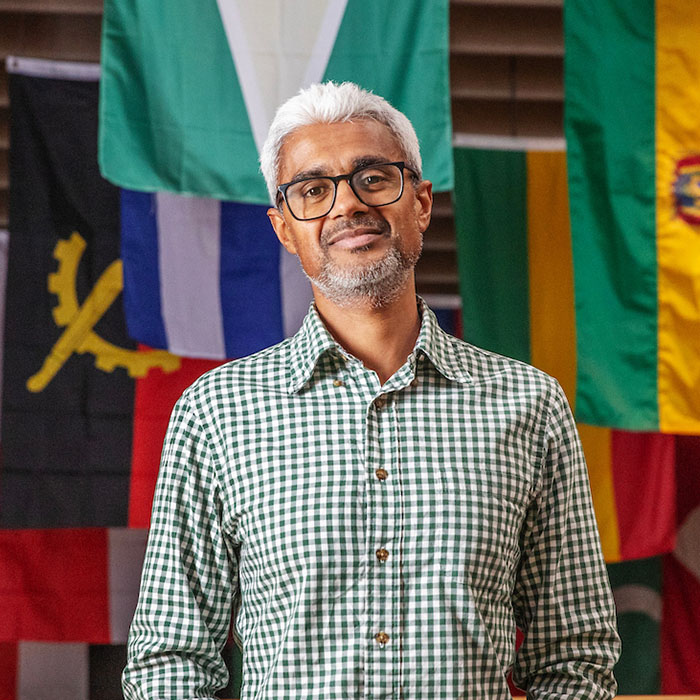Speakers Bureau hosts visit by Gloria Steinem
Feminism, politics, current affairs, reflections and advice — legendary activist Gloria Steinem covered them all in a Feb. 21 talk before an enthusiastic audience of 600 at Arthur Zankel Music Center.

Following the talk, Steinem meets students
in Zankel lobby. (Photo by Mary Parliman)
Her goal for the evening: “I hope that each of us leaves with some new idea, a piece of information, an ‘aha’ or something that makes us different and better.”
To foster that process, she quickly launched a discussion of social justice initiatives, starting with the women’s movement. “Many people say such movements are over,” she said. Yet she cautioned, “Any big social justice movement that is to become absorbed has to last a century.” In the case of the women’s movement, “we’re only about 40 years into this. By that historical model, we’ve got a long way to go.”
Regarding politics and the 2008 primary battle between Hillary Rodham Clinton and Barack Obama, Steinem acknowledged, “I never believed that Hillary Clinton would win — it was too early for any woman to win.” She called the news coverage of Clinton’s campaign “appalling” and attributed it to “the repressed childhoods” of the male reporters. “We associate female authority with childhood,” where mothers are the key authority figures, she argued; the male reporters covering the Clinton campaign “saw an authoritative woman and regressed to childhood.” Looking ahead, Steinem said, “Progress for each of us tends to lie in the direction we haven’t been. By that measure we can see how far we have to go.”
Violence, and domestic violence in particular, is a critical issue for Steinem. “When I started, there were no such words as ‘battered women’; it was just called life. Now we understand the phenomenon and recognize that family is a microcosm of society.”
Later she warned that violence against females and attempts to control reproduction tends to “normalize all other violence.” She continued, “When I look at the country and see the degree of violence that we’re all worried about—the hostility of the political rhetoric and the obsession with guns—I recognize the that the paradigm of domestic violence is instructive, because the country is escaping hierarchical ways of thinking about race, gender, and class. This is a time of danger because there is no stopping the country as it continues to move toward freedom from the old hierarchical examples.”
Moving on to economic issues, Steinem asked for a show of hands from students assuming debt to finance their educations. Student debt is “outrageous,” she said, and should be made “bankruptable.”
She also discussed reproductive freedom (“a fundamental human right”), the environment, religious freedom, and civil rights and urged the audience to avoid thinking in “silos” when it comes to rights and liberty movements, because everything is connected. “All of these areas of understanding are areas where we can make a profound change through interaction with each other,” Steinem said.
For approximately 30 minutes, Steinem fielded audience questions, and she appeared delighted by comments from students calling her a major influence or noting that their mothers were thrilled she was speaking at their child’s college. Students asked about the future of the Equal Rights Amendment (she said she thinks it will pass eventually), if it is possible to be a prolife feminist (“yes, if you make the decision for yourself and not others”), paid hourly sick time (she’s on record supporting such a proposed local law in New York City), and the third wave of feminism.
One student asked Steinem what makes her most proud. “We become most proud when we stretch our nature,” she replied. “Starting Ms. magazine was profoundly terrifying, because I always wanted the illusion of freedom, and when I became responsible for the magazine, it went against my nature.” Asked for advice to young women working in male-dominated fields, she offered: “Have girlfriends, don’t obey the local hierarchy, and ask for what you’re worth.”
Steinem concluded by telling her audience, “In a general way, movements free you to act the way you feel; authenticity is the path to a diverse and long-lasting movement. The means are the ends. It’s a freeing way to think.”


